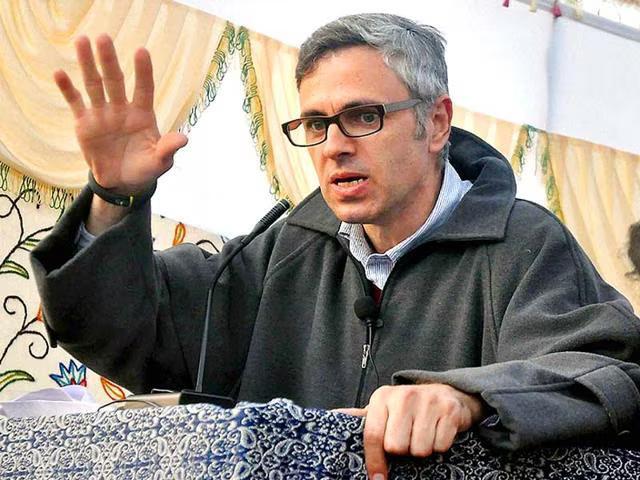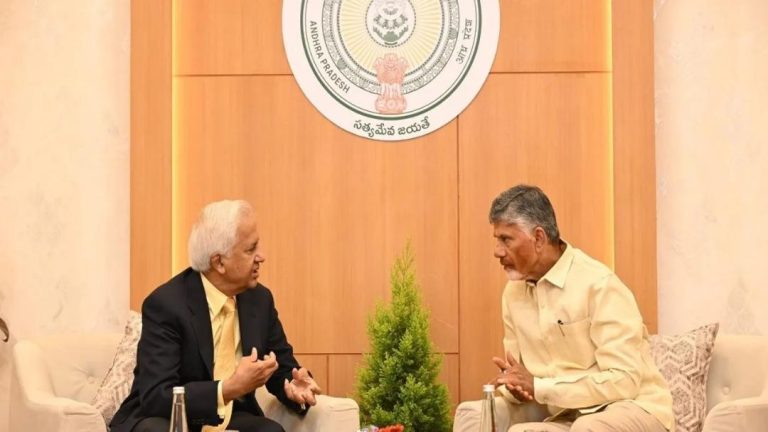
US Doesn’t Care About Any Other Country: J&K CM Omar After Trump-Pak Army Chief Lunch
The latest diplomatic development between the United States and Pakistan has sparked a heated debate, with many questioning the motives behind US President Donald Trump’s decision to host Pakistan’s army chief, Asim Munir, for lunch. The move has not gone unnoticed, with several world leaders and experts expressing their concerns and surprise at the sudden development.
One of the prominent voices to react to the news is Jammu and Kashmir (J&K) Chief Minister Omar Abdullah, who minced no words in expressing his thoughts on the matter. In an interview, Omar Abdullah stated, “We can’t dictate to the US President whom he should invite for dinner… We used to think the US President was our close friend, and he’d respect that, but the US does what benefits them, they don’t care about any other country.”
Abdullah’s comments are a stark reflection of the growing distrust and frustration among many countries with the US’s foreign policy. The decision to host Pakistan’s army chief, who has been accused of supporting terrorism and human rights violations in Pakistan, has raised many eyebrows and sparked concerns about the US’s priorities.
The US-Pakistan relationship has always been complicated, with the two countries having a history of cooperation and tensions. Pakistan has been a key ally of the US in its war against terrorism, particularly in the aftermath of 9/11. However, the relationship has been strained in recent years due to Pakistan’s alleged support for terrorist groups and its failure to take decisive action against them.
The decision to host Pakistan’s army chief for lunch has been seen as a significant move by the Trump administration, given the country’s history of supporting terrorism and its strained relationship with India. Many experts have pointed out that the move may be part of a larger strategy to reset the US-Pakistan relationship and to use Pakistan as a key player in the US’s Afghanistan peace talks.
However, Omar Abdullah’s comments suggest that the move may have unintended consequences, particularly for countries like India that have been critical of Pakistan’s role in supporting terrorism. The US’s decision to host Pakistan’s army chief for lunch has been seen as a slap in the face for India, which has been a key ally of the US in the region.
The US’s lack of concern for other countries’ interests is not a new phenomenon. The country has a history of pursuing its own interests, even if it means disregarding the concerns and interests of other nations. The Trump administration’s decision to recognize Jerusalem as Israel’s capital, despite international opposition, is a prime example of this.
In recent years, the US has also been critical of several countries, including Iran, Cuba, and North Korea, for their human rights record and their alleged support for terrorism. However, the US’s own human rights record has been criticized by many countries, particularly with regards to its treatment of minority communities and its use of drone strikes.
The US’s decision to host Pakistan’s army chief for lunch is a reminder that the country’s priorities are driven by its own interests, rather than a concern for the well-being of other nations. While the move may be seen as a significant development in US-Pakistan relations, it is also a stark reminder of the US’s lack of concern for other countries.
In conclusion, Omar Abdullah’s comments are a reflection of the growing frustration and distrust among many countries with the US’s foreign policy. The decision to host Pakistan’s army chief for lunch is a significant move that has far-reaching implications, particularly for countries like India that have been critical of Pakistan’s role in supporting terrorism.
As the world watches the US-Pakistan relationship unfold, it is important to remember that the US’s priorities are driven by its own interests, rather than a concern for the well-being of other nations. The US’s decision to host Pakistan’s army chief for lunch is a stark reminder of this, and it is up to other countries to work together to promote a more balanced and equitable approach to international relations.






